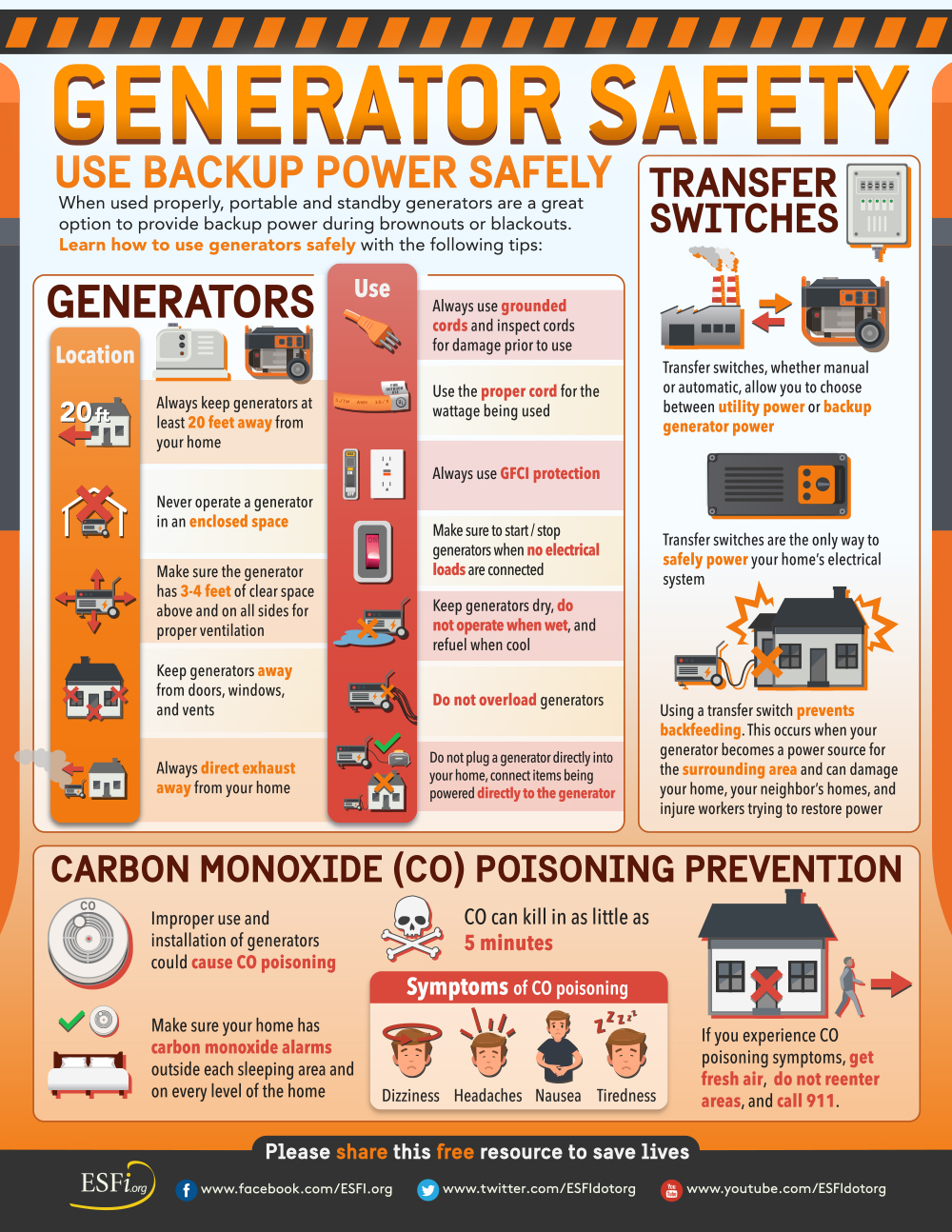
Generator Safety
When using electric generators during power interruptions, be sure that the unit is sized and installed properly, and operated safely and according to the manufacturer's instructions. Follow these common sense safety tips:
- Generators should be sized to meet the needs of the appliances they are connected to. If too small, appliances can be damaged, and the generator can overheat, creating a fire hazard.
- Plug appliances directly into the generator using a heavy-duty, outdoor-rated extension cord that is designed to handle the wattage of all the appliances being connected.
- If a generator is connected to the home, have an experienced electrician install the unit using the proper switches and connections. Improperly installed generators may overload circuits, cause a fire or shock hazard, and can result in serious injury or property damage.
- Generators connected to the home must also be installed so that electricity will not back-feed onto electric lines, which can endanger repair crews working to restore service. A disconnect switch should be professionally installed by an electrician.
- Do not operate generators in an enclosed area such as a garage, shed or enclosed porch, as this may cause a build-up of deadly carbon monoxide gas. Generators should be operated in open areas, but also protected from water by being placed, for example, on a dry surface under a shelter to prevent electric shock. Also, be sure to shut off generators when refueling, and store generators in dry areas to prevent moisture damage.



